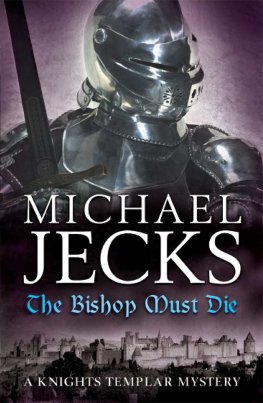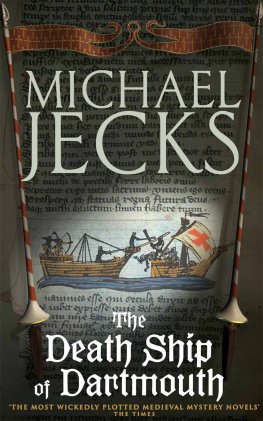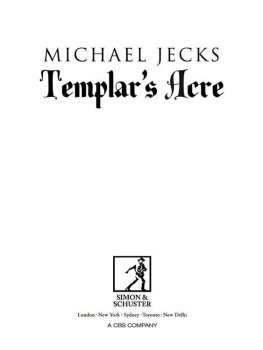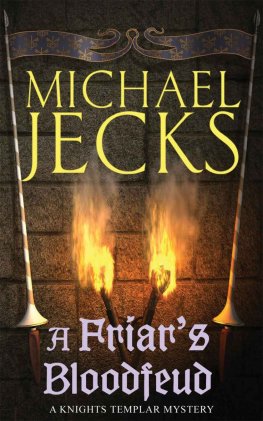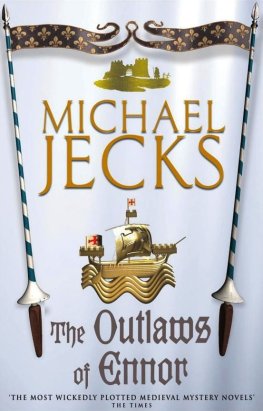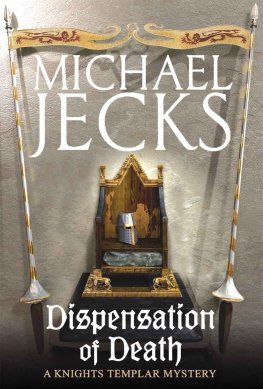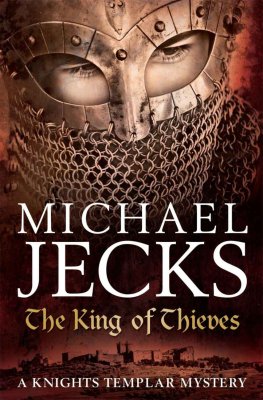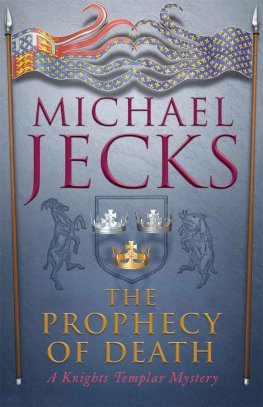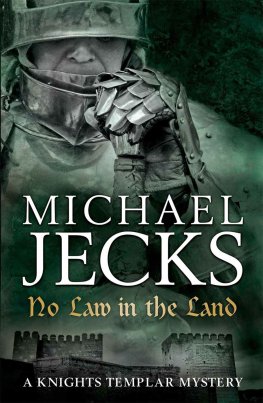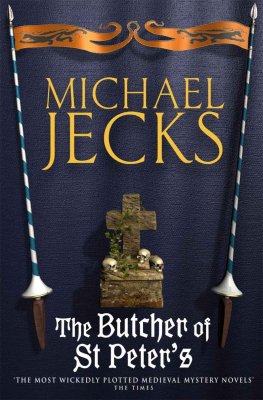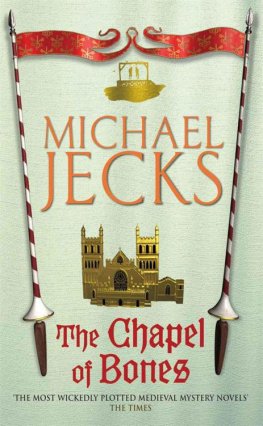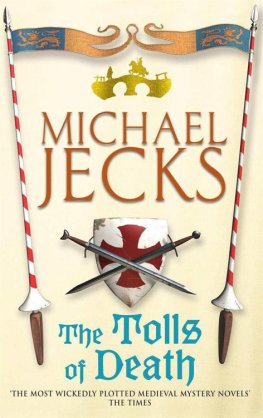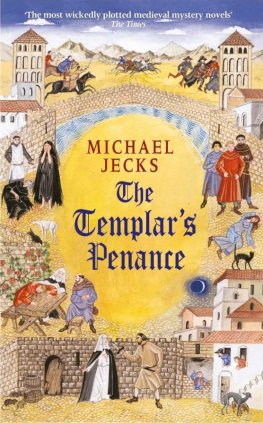Michael Jecks - The Bishop Must Die
Here you can read online Michael Jecks - The Bishop Must Die full text of the book (entire story) in english for free. Download pdf and epub, get meaning, cover and reviews about this ebook. year: 2014, publisher: Headline, genre: Detective and thriller. Description of the work, (preface) as well as reviews are available. Best literature library LitArk.com created for fans of good reading and offers a wide selection of genres:
Romance novel
Science fiction
Adventure
Detective
Science
History
Home and family
Prose
Art
Politics
Computer
Non-fiction
Religion
Business
Children
Humor
Choose a favorite category and find really read worthwhile books. Enjoy immersion in the world of imagination, feel the emotions of the characters or learn something new for yourself, make an fascinating discovery.
- Book:The Bishop Must Die
- Author:
- Publisher:Headline
- Genre:
- Year:2014
- ISBN:9781472219893
- Rating:3 / 5
- Favourites:Add to favourites
- Your mark:
- 60
- 1
- 2
- 3
- 4
- 5
The Bishop Must Die: summary, description and annotation
We offer to read an annotation, description, summary or preface (depends on what the author of the book "The Bishop Must Die" wrote himself). If you haven't found the necessary information about the book — write in the comments, we will try to find it.
The Bishop Must Die — read online for free the complete book (whole text) full work
Below is the text of the book, divided by pages. System saving the place of the last page read, allows you to conveniently read the book "The Bishop Must Die" online for free, without having to search again every time where you left off. Put a bookmark, and you can go to the page where you finished reading at any time.
Font size:
Interval:
Bookmark:
Michael Jecks
The Bishop Must Die
Chapter One
Third Saturday following the Feast of St Michael, sixteenth year of the reign of King Edward II*
Gloucester Gaol
The stench was unbelievable.
Hundreds had gone through this place in recent months. Since the battle at Boroughbridge, the contrariants, who chose to dispute the kings excessive powers, had been hunted down and incarcerated many of them here in Gloucester, and all appeared to have left their mark. The gaol reeked of sweat, piss and blood and the little sewer outside was incapable of taking away the faeces of so many.
Men died here every day. The battle had been lost, and since then the fortunate ones had been taken out in their threes and fours, and executed on the green, where the citys folks could watch. Sometimes there was a festival atmosphere, and loud cheering and laughter heralded the latest jerking body at the end of a rope, but that was at the beginning. Now even Gloucesters people were grown weary of the sight of so many men being killed. There had been a feeling after the battle that the kings rage was natural. Not now. The dead were displayed in cages up and down the country; some, quartered, had their leathery limbs decorating the principal cities, while their blackened, skull-like heads stared out from the tops of spikes in London.
But Ranulfs father had died here today without fanfare. An old man, he had endured the grim misery of the gaol for nearly forty weeks, from his arrest until today. The king had not seen fit to put a stop to his suffering sooner. He was no threat, after all, so there was no urgency in hastening his end.
Sir Henry Fitzwilliam. Proud knight, good father to a motherless son, husband to a second wife, kind and generous to all servants and travellers, he did not deserve to die in this foul prison, without seeing the sun for months.
Here he is. You want him or not? the gaoler demanded.
Weeping, the young man lifted the filthy, light old body onto his shoulder, and walked out. In the sunshine he had a cart waiting, and he gently settled his father onto the bed, covering his foul clothing with a linen wrap. It would do until he could have his fathers body washed and cleaned.
One hand protruded from the cloth, and as Ranulf tried to push it under, he saw the little leather purse.
The purse that held the symbol of Sir Henrys authority, status and power. Empty now, for the king had stolen the stamped disc months before, after his order to confiscate Sir Henrys lands last December, but still his father had retained the purse.
His fathers determination to hold on to the last token of his life was the thing that made the young man break down now.
It was the last time Ranulf would weep for his father, he swore.
First Tuesday after the Feast of the Birth of St John the Baptist, sixteenth year of the reign of King Edward II*
New Palace Yard, Westminster Palace
It was sweltering as the young knight hurried across the yard, making his way to the kings Great Hall and the offices of the Exchequer. Raucous laughter ebbed about him from the massed tents and stalls that stood so tightly packed that even the alleys between were almost impassable.
He detested this place. It was the site of corruption and theft. Only dissembling politicians, conniving clerics and masters of deceit came here. Barons, lords, bishops and lawyers all the dregs of the realm would congregate, trying to steal for themselves whatever they could get their hands on. Well, not this time, not from John Biset. He was of age now, and he could prove it; he would prove it.
At the door to the Exchequer, he paused, suddenly irresolute, and glanced down at the parchment rolled tightly in his hand. It looked so mundane, just a simple legal document, but with the huge seal attached, it was so much more than that. It became, with that seal, a command. An order to obey.
The reflection was enough to make him stand taller. He would have nothing to fear after this. His persecutors would find it hard to refuse him anything now.
Above him towered the mass of the Great Hall, a fabulous construction, built originally by King William II more than two hundred years before, and still unequalled, he thought. Nearer him, at the corner, was the large, two-storeyed block that housed the Exchequer itself, and, steeling himself, he walked inside.
Immediately he was struck by the chill. The stone kept the sun at bay, and several of the clerks in here were forced to huddle within their robes when they were at work for long periods. John Biset eyed the men in the room, casting about for the bishop, but without luck. It was only when he asked a small clerk with a face so badly pocked he looked as though he had been scarred in a fire, that he was directed through the door at the rear which gave out into the Barons Chamber, a smaller meeting room.
Bishop Walter. I am glad to find you, John said.
Bishop Walter II of Exeter was a tall man, somewhat stooped. He peered about him with the short-sightedness so common to those who strained their eyes late into the night with only a flickering candle to help them. Yes?
John stepped forward and took the Bishops hand, giving the ring a cursory kiss before stepping away again. I have it, my lord. I have confirmation.
Do I know you, my son?
I am John Biset. You may not remember me, but perhaps you recall my tenant Sir Philip Maubank. His name will be familiar, I am sure. Hes the man who died this last Whitsuntide,* leaving his grandson and heir as my ward, and placing the custody of his lands in my hands. Until you tried to take them!
Me? the bishop said mildly. I am sure you are wrong.
Oh no, my lord bishop. You aided your friend Sir Hugh le Despenser when he tried to steal my manor from me.
Which manor was that?
Rockbourne in Hampshire. Sir Hugh is not content with all his other lands, now he must try to steal from me as well.
Oh?
But this proves you cannot just take my manor and walk away. Sir Hugh wont have Rockbourne, and I can prove my age.
At the name of the manor, the bishops eyes had grown hooded. How will you do that?
I have a statement here which proves my age.
That was the moment when John Biset saw the quick, shrewd concentration in the bishops eyes. You have a statement? Let me see it.
Oh no, my lord bishop. This is mine. You will see it soon enough, when I go into the court and present it.
The inquest is not yet held, the bishop said.
No. But as soon as it is, I will have my proof, and then I shall have the wardship of Maubank.
Perhaps, the bishop said. But he spoke musingly, and hearing his tone, Biset thought he was merely ruminating on the vicissitudes of his life. For the bishop had sought to win the wardship for himself. Maubank was not hugely wealthy, but the amount of money which his lands would bring each year was not insignificant. And for a bishop who was attempting to fund the rebuilding of his cathedral, such money was not to be given up lightly.
That was all John Biset thought of the matter at first. But later that day, after the inquest held into his age, he was a little alarmed to see the clerks at the bench writing out the findings and passing them along the table until they were taken by another clerk. The latter took the papers around behind the working men at the bench, and a few minutes later, John Biset saw Sir Hugh le Despenser appear, in deep conversation with Bishop Walter.
At once a flare of alarm ran through John Bisets body. The last man he had expected to see here was Sir Hugh. Known throughout the kingdom as the most rapacious and covetous man, yet was he protected by the king, who sought always to cosset and enrich his favourite.
Font size:
Interval:
Bookmark:
Similar books «The Bishop Must Die»
Look at similar books to The Bishop Must Die. We have selected literature similar in name and meaning in the hope of providing readers with more options to find new, interesting, not yet read works.
Discussion, reviews of the book The Bishop Must Die and just readers' own opinions. Leave your comments, write what you think about the work, its meaning or the main characters. Specify what exactly you liked and what you didn't like, and why you think so.

